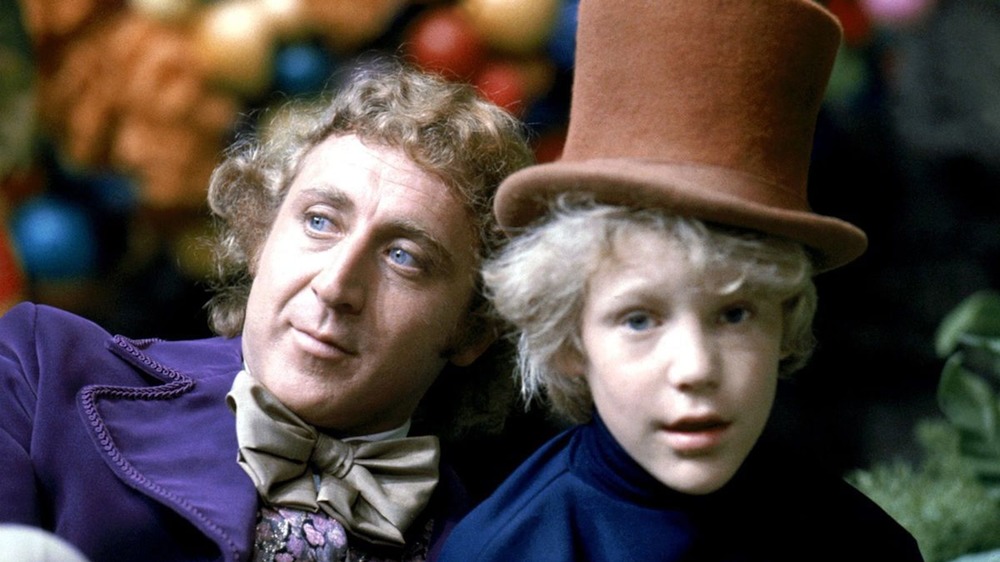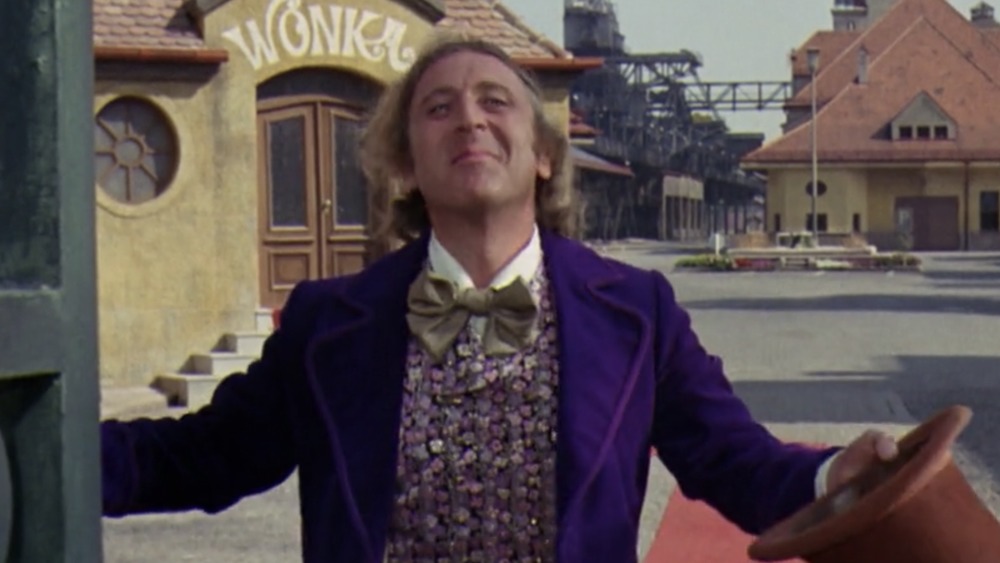This Was Gene Wilder's One Stipulation To Play Willy Wonka
These days, it's viewed as a cinematic classic that's passed down from one generation to the next, but upon its initial release in 1971, moviegoers didn't know what to make of Willy Wonka & the Chocolate Factory. As it was, the film all but bombed at the box office, and lingered longer than anyone might've expected in the realm of cult classic before eventually earning legit classic status decades after its theatrical run.
It's not all that hard to see why audiences couldn't make heads or tails of Willy Wonka & the Chocolate Factory in 1971; the whimsical and unexpectedly psychedelic world within was something largely unseen in family-friendly fare previously. Whatever you make of the wonderfully weird (and occasionally terrifying) world of the original Wonka flick, it is indeed a family-friendly affair — at least, as family-friendly as the off-kilter works of Roald Dahl get.
At the center of the weirdness is, of course, a towering performance from the late, great Gene Wilder who, prior to appearing as the titular candyman in Willy Wonka & the Chocolate Factory, was best know for his comedic work in Mel Brooks' beloved 1967 satire The Producers. Indeed, it was likely Wilder's work in that seminal farce that earned him a shot at portraying the singing, dancing, prat-falling eccentric at the heart of Wonka. It seems, however, that the world almost never saw Gene Wilder play Willy Wonka at all.
Wilder himself teased that nugget to none other than Larry King in a 2002 CNN interview, telling the legendary talk show host that he agreed to join the cast of Willy Wonka under one condition: that he get to play the character's introductory scene exactly the way he envisioned.
Willy Wonka's iconic intro proved pivotal for the character, and it was all Wilder's idea
Wonka's wonky introductory scene is the very definition of iconic, beginning with a wobbly cane walk, and ending with a cart-wheeling pratfall that spins a seeming tragedy into a whimsical moment of wonder. The scene was not, however, a part of Roald Dahl's source material or even the author's own adapted screenplay, with Wilder explaining he conjured the inspired introduction himself.
"I was offered the part. I read the [Roald Dahl] book. And Mel Stuart, the director, came to my home in New York. He said, 'You wanna do it?' and I said, 'Well, I'll tell you, I will do it if I can come out, and all the crowd quiets down, and I am using a cane.' Oh, my God. Willy Wonka is crippled. 'And I walk slowly and you can hear a pin drop. And my cane gets stuck in a brick. And I fall forward onto my face and do a forward somersault and jump up, and they all start to applaud.'"
Apparently Stuart didn't quite get where Wilder was going with the scene, but relented as it was the only way he'd land the star he wanted for Willy Wonka & the Chocolate Factory. Once Stuart agreed, Wilder explained by telling his director "because no one will know from that point on whether I am lying or telling the truth."
Wilder's insightful explanation proves he may well have understood the twisted character of Willy Wonka even better than both Dahl and Stuart as the moment not only works both dramatically and comedically, but also establishes Wonka as a mostly unreliable narrator, and an especially unreliable tour guide. That fanciful smoke-and-mirrors sort of deception is at the heart of both the man and the story itself, and it seems we have Gene Wilder to thank for it.

